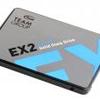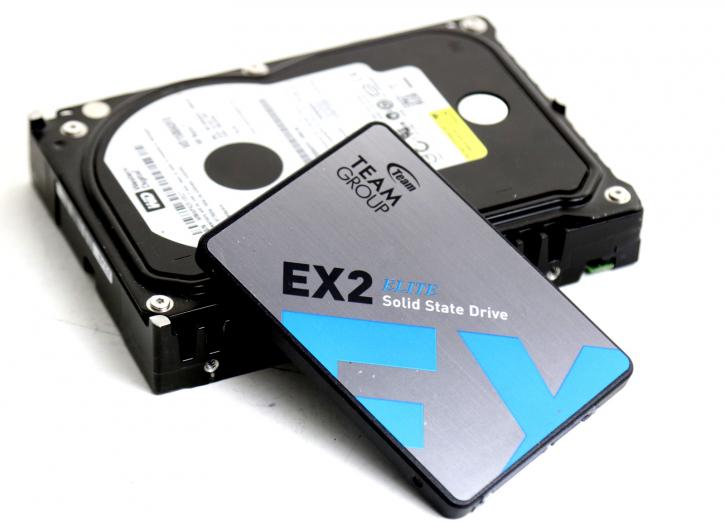Final Words & Conclusion
Final Words & Conclusion
What can we say about the EX2 series? Well, it's both good and bad. For big files and mediocre workloads, this SSD performs well, heck it will not even hit a TLC write hole under sustained loads, thus copying big files will not be hindered by performance limitations. However, with complex highly threaded small file workloads the performance simply caves in. After testing ti my conclusion is simple, I would not recommend this SSD to be an OS drive. That said, for cold storage like movies, MP3 and big files or as a NAS SSD, this would work out great. Also for gaming, it could be a nice alternative. This SSD can be rated roughly 240 TBW, thus guaranteed at 240 Terabyte written I mean ... that's not heaps either. Then again, if you write say 20 GB a day / 365 days a year that would be 7.3 TB per year then you are looking at 33 years of lifespan, easily even as these units often write way beyond what is rated. Of course, half that for the 500 GB version. Typically we often see TLC NAND issues with linear and sustained writes, e.g. after writing a couple of GB the performance drops. It is not documented, but TeamGroup makes use of an SLC written NAND cache. During our tests, it'll write fast sequentially up-to 425~500MB/s. However and again, with huge ques of small files, this SSD will cave in for write performance.
Concluding
As you have been able to see, overall the SSD performs 'okay' at best within the SATA3 segment. Quite interestingly we noticed it battling with the 870 QVO series from Samsung quite a lot and that latter one is actually a QLC SSD, this one writes TLC on 64-layer NAND. In the end, we feel the SSD is barely enough for what it needs to be in the SATA3 segment as an OS SSD. We say this as it is no slough, and it will run the advertised speeds in synthetic benchmarks and mostly sequential workloads (like large ISO and movie files), it does not hit any TLC write hole there either. However, once you get complex workloads with smaller files, the SSD starts to slow down immediately. In a lot of data traces and more complex workloads, we noticed that very clearly, the SSD falls back significantly with inept average access times. So for this drive to make sense, it needs to be cheap and it needs to be used for cold storage (MP3/Movies/NAS), for that it would be very suitable. For an OS, I'd steer you towards something M.2 NVMe. Pricing then, the 1TB tested will sell for 99 USD, that's roughly 10 Cents per GB, not bad. However, for just 20 bucks more, you can already purchase potent M.2 NVMe SSDs. So I can see this SSD series as a quick and easy upgrade or usage in a NAS well, bit prices would need to sit at 10 cents per GB for it to make any real sense, as there are more interesting competitive offers in this very saturated market segment. I mean an MX500 sells at 103 USD for the same volume size. TeamGroup will give this SSD a three-year warranty with good TBW values, but give this SSD the right circumstances in say a NAS and perhaps with a nice rebate and perhaps this will be interesting enough for some end-users. Other than that, it's not anything special and something we've seen and tested for years now. It's quick, add-in easy storage, but nothing more than that.
Recommended Downloads


